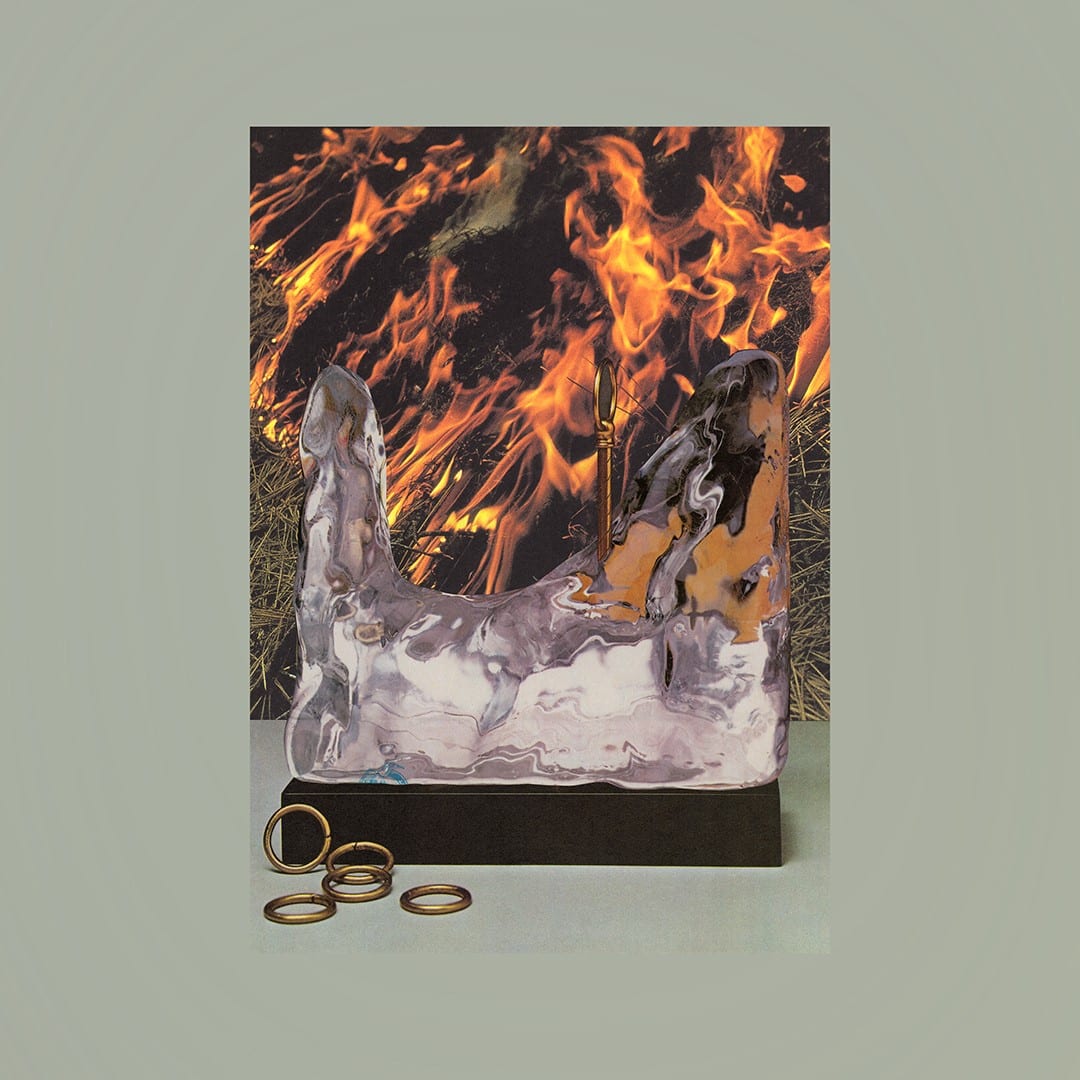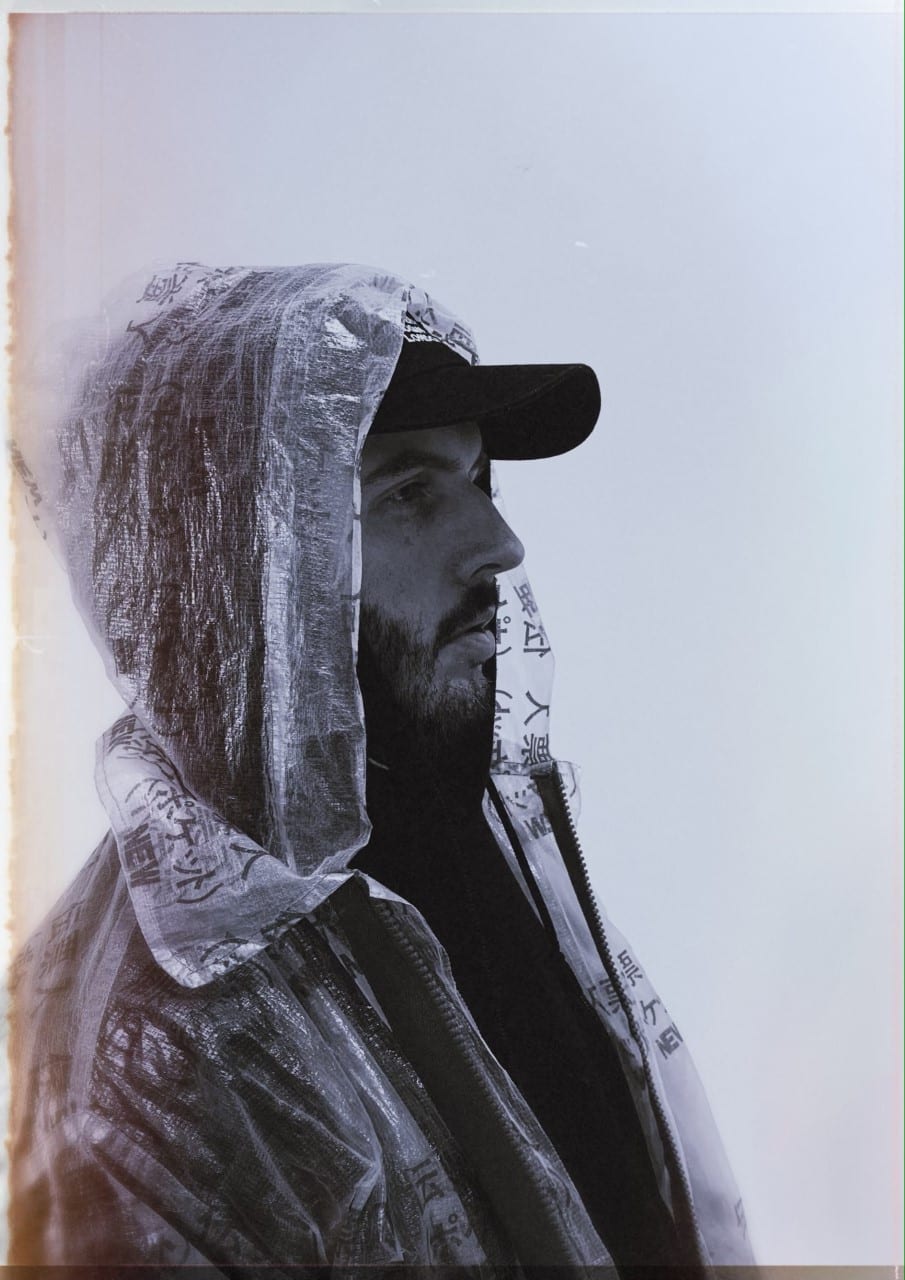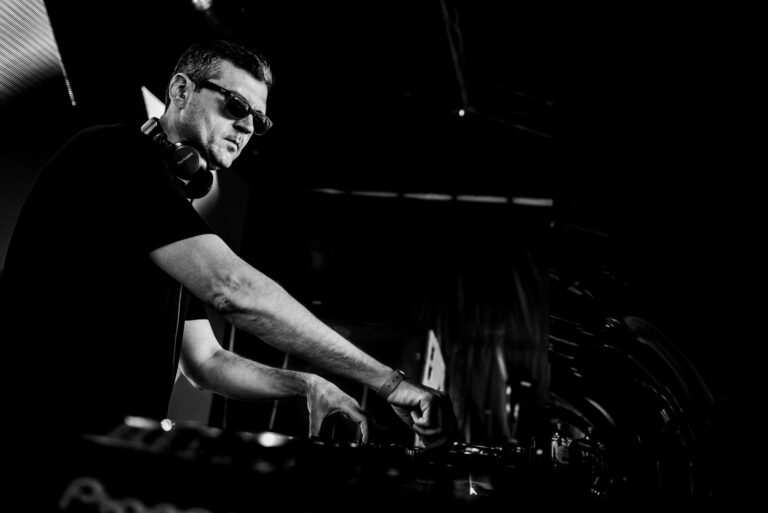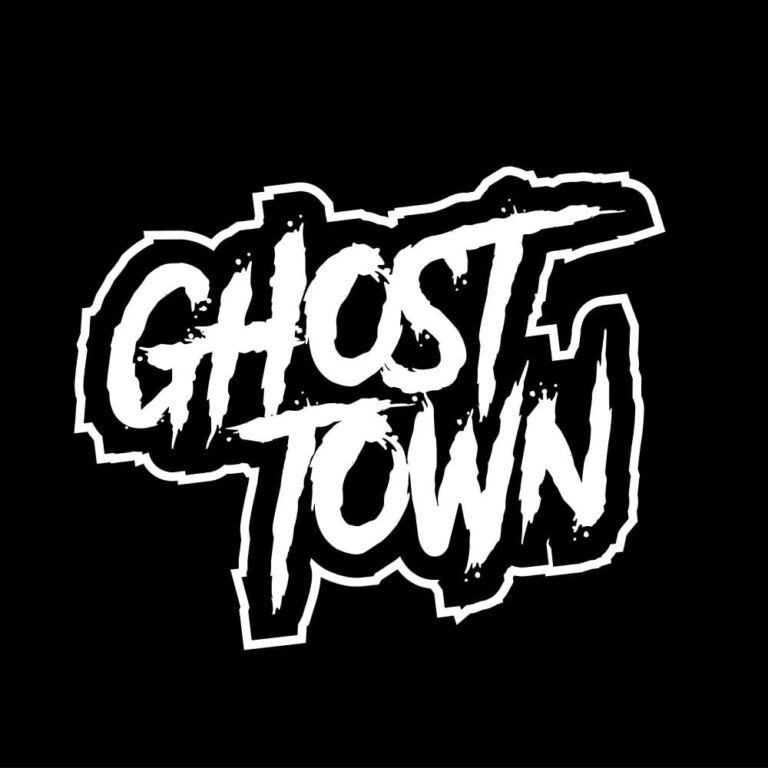2020 has been a relatively quiet year for Need For Mirrors when you compare it to his usual output. A handful of releases on the likes of Commercial Suicide, Souped Up and V Recordings showcased his extensive stylistic range, effortlessly pushing sub-genre boundaries as he traversed the drum and bass spectrum. However, now we’ve seen the fruits of his labour come together once more in an extended body of work, as he releases his second album; Flames.
Out on the seminal 31 Recordings, a label that doesn’t have a reputation for showcasing longer players, Flames is the next step in Need For Mirrors ascension to the top of the ladder. He demonstrates what a good drum and bass album in 2020 should sound like, with a perfectly balanced collection of 12 listening tracks that take the listener on a journey and give a glimpse into his story, both as a person and an artist.
Deep, profound, textured, mysterious, atmospheric; the list of adjectives that describe Need For Mirrors’ work is seemingly endless. With a distinguishable sound that could only be from him, the originality, balance and poise that surround his productions ensure his name carries the respect it rightly deserves.
Coming together organically like most of his productions, the album’s key concept revolves around the vocal tracks, described by label boss Doc Scott as “something special, something a bit different” and having a “quality to them that’s not heard very often in Dnb.” Rooted in authenticity and respect for the cultural roots, the sound’s experimental nature showcases the futuristic possibilities that 170-bpm music can truly hold.
Ensuring there’s a unique dynamism that allow the tracks to be enjoyed both at home and on the dance floor, the album, like all of Need for Mirrors’ productions, has been meticulously road tested for over a year at Soul in Motion, the London-based club night he operates alongside Bailey.
The New Zealand-born, UK-based artist will be returning to his homeland to tour the album over the new year, so we thought we’d call up the man himself to hear all about the new album before he jets off….
So, you’ve just had your second album hit the shelves. Is it true when people say it’s always easier once you’ve got the debut out of the way?
Yeah, I think so. Like the first album it all happened quite organically. Neither of them were ever intentionally meant to be an album. They started as singles, before working their way into EPs and then being full albums. Both followed a similar process; they just had different labels A&Ring and giving their insights into the projects.
You first appeared on 31 Records on a collaboration with DRS last year. When did Doc Scott approach you about the possibilities of an album?
I actually first appeared on 31 about ten years ago under the name Mosus on a track with S.P.Y, but the collaboration with Del was my first on the label as Need for Mirrors. I’ve known Scotty for a very long time so there have always been tracks going back and forward. Around the start of 2019, I sent over a few which made quite a nice release, and I already had a few bits that were sitting there. There had been the Calibre mini-LP on the label which came out around the same time I was working on my project. It free flowed into something bigger than what I originally intended as I kept flinging stuff over which Scotty liked, so it filled itself out and started sculpting its own narrative. Things on the project kept inter-connecting and then I was writing new bits as well to fill in the gaps in the story. After a while, it had become a 60-minute LP that had the potential to take the listener somewhere.
31 aren’t known for putting out albums- having the trust and mentorship of Scotty must have been pretty special…
They had an album on the label a few years ago, but apart from Calibre’s 8 track mini-LP this is the first in recent years. The label isn’t known for albums, so this is a bit of a milestone, or maybe it’s the start of a something new with the label, a new direction it wants to take? I’m really humbled to be able to showcase an extension of myself on 31, and so grateful to Scotty for taking the risk in doing something so big.
I found it interesting how you say that this album, like Swim, happened organically. It seems with Flames there’s more of a concept, that you had a clear vision for how you wanted the end result…
I always have some kind of rough concept or idea when I start a project. I’m sitting on other albums right now as I write tracks and put them aside as I feel they’ll fit the concept that I have in mind. With Flames, I had lots of big dancefloor tunes that just weren’t album tunes and wouldn’t have fitted. Once I had an idea where I wanted to go, it became easier and things started to come together. New things would be added, and they changed the dynamic, but for the better. A concept is important but so is the pace of an album. This was something I learned from Klute when I released Swim, as he’s released so many albums so really has mastered the art of organising a track list to ensure the pace is perfect. When listening to an album, I want to listen how every track links perfectly, so with my albums I actually took tracks away because they just didn’t fit right. I don’t think of the tracks as singles, I’m thinking of them as you’re listening to me for an hour, you know? This is what I want to say and where I want to take you.
You’ve talked about peaks and troughs before, and wanting to take the listener through that journey…
Yeah, absolutely. On the album we move the BPM from 170 to 172 to 174 and then back down to 170 again. It’s not as obvious as the changes in the beat programming though. The way the rollers and steppers work together in the middle of the album, for example. Also, as there are lots of different vocal tracks on the album, they all need to be brought together so you can see how the story is sung between them. There’s a backwards and forwards between male and female vocalists who obviously bring different dynamics, so you ask what one song is saying to another.
You mention the vocal tracks there; why was this a sound you wanted to focus on and explore?
It was really because they were the songs that Scotty had picked! I’ve always liked vocals on tracks and believe that you can still write a really good drum and bass track that has vocals, just look at Reprazent back in the day. I like to hear things in music that resonate with people, for example, a colloquial British accent such as Ian Brown or Thom Yorke, or an American spoken word. I like to hear a contrast in music, so I don’t want to hear 10 tracks that sound the same. I come across samples that I want to add which I know will really help me paint the picture. Every piece of music that I write is to be played in my set. Take a night at Soul in Motion, the album was played week in week out for over a year. I could look to see who was there, whether they were a Londoner in every week, or a tourist in Soho for one night only, and want them to take something away conceptually from the night.
One of the features on the album is with Sal, a producer from New Zealand who I’ve known for a long time. He came to me with the original idea for Without U and I instantly saw where it could work on the project. Lyrically, I knew it would work for the people who came to my nights and listened to my music as they would be able to relate to it. They’ll leave after listening to a tune like that and be like “what was that song with the vocal that went like this…” This allowed me to gauge reactions and then I can build more tracks like that with a similar vibe. The other collaboration is with Vromm which isn’t so vocally led, but he just did such an amazing job, I was just blown away and knew I had to have it on the album.
There’s also a cinematic style that runs through the album with your use of strings and piano, but I want to pick out one tune in particular; Slewisham. From the name of the track it certainly wasn’t what I was expecting. What was the story behind it and the sound you were trying to explore?
I think what I was trying to show with that was a sonic interpretation of a wet, greasy, rain-drenched London. I remember finishing the demo and listening to it while I was getting an Uber into the city from my home near Lewisham. I was driving over the bridges and looking at everything around me and it really fit the track. Doc Scott says the drums are very Calibre-esque which I can hear, but the way I used the strings comes from being influenced by people like Portishead or Massive Attack. The way Unfinished Symphony by Massive Attack swells and has layers of optimism was kind of what I wanted to do with Slewisham.
When I listened to it, I got a similar feeling to when I listen to a Burial track. Your descriptions of driving through a rainy London are like those feelings of nostalgia a Burial track can give you coming back from a night out…
I’m a huge Burial fan so maybe I was subconsciously influenced by his sound. I can definitely hear that kind of style in the track. Weirdly enough, when I was making Play Doh, the original sketch for it was very Burial-esque with a really ambient kind of vibe. It became a lot more stripped back and a bit more dancefloor, but there’s still lots of white noise and crackling records in the background. I think you can hear my influences in different tracks throughout the album. With something like Dior Trench, there’s a real industrial sound to it, something similar to Nine Inch Nails. On Coppola, I was imagining a techno record with a big build-up and drop. The kind of thing you could imagine Carl Cox playing to 50,000 people in a huge arena.
Even though you explore all these different soundscapes in the album, you mentioned that everything you write still has to procure a dancefloor edge…
I find it redundant if I can’t play them in a club. The biggest disappointment for me would to be make something that I knew wouldn’t be able to be played out. My music isn’t made to be released, I write it so I have the tunes I need to be able to play for hours on end with stuff people have never heard before. My time is super valuable to me, so I just never want to be wasting it. Everything that I do can be recycled or reworked so nothing goes to waste. I can still pull on ideas that I started 10 years ago but only feel ready to finish now. Maybe it needed a new technique that I didn’t know at the time, or a new approach that I could only do after leaving it for a while.
How has not having club life affected your work-rate? You’re notorious for writing an insane amount of music…
This year I definitely haven’t written as much. The lockdown for whatever reason just wasn’t good for my productivity. I spent a similar amount of time in the studio, but I haven’t been able to get the results I wanted. Not playing clubs has really affected it as well. A track can sound good in the studio, but I’m not getting the reaction from the crowd which almost solidifies the whole process. When it’s played out, its purpose has been met, so not having that has had a negative effect on it all.
I spoke with an artist recently who said playing out is an instant A&R session, to gauge what people think of your music…
Yes, but for certain tunes. My music is all about placement, so if it’s played in the wrong place it will never work. With collaborations I’ve done in the past, I know they’ll work wherever, but my own stuff will only work at a certain time of the night, or if they’re part of an extended set. With an hour set, it’s impossible to play some music. Having my own night with Bailey allows me to play different music depending on when I’ll be playing that night. If I’m on for a peak time one-hour set, it’s harder for me to delve into lots of super deep records. The club night also means that I can play whatever music matches my mood. If I’m feeling shit, or happy, or pissed off or really optimistic, I can tap into it. Not having the chance to do this has made making the music a lot more difficult as my usual creative process can’t be stimulated.
I bet you can’t wait to get back to it all. Soul in Motion returns on the 11th of December, right?
Yes, we’ll be back. It’s obviously going to be socially distanced and sticking to all the regulations. The experience will be different as you’ll be sitting instead of immersing yourself in a sweaty club, but it’ll be a celebration of the music and coming together. Saying all that, I’m not going to be there.
You’ll be off to play some shows in your homeland over New Year- that will be a perfect way to showcase the album!
It hasn’t really set in just yet. It still feels so far away. Life on this planet is very short, so I’m just taking each week as it comes. I’ve always thought that music is made to make people happy or help them escape, so in times like this it’s important to get the album out there to share with everyone. I didn’t want to hold it back to get the ultimate sales or wait for the right moment to maximise the coverage. There are people who want your music to help them get through this struggle. Hopefully they can see that the album is an extension of my life and my story. We’ve had Swim and Flames, so we’ll get onto the next one. That’s me now, I’m confident in the long players. We’re going on a journey.
Need For Mirrors – Flames is out now on 31 Recordings
Follow Need For Mirrors: Facebook / Soundcloud / Twitter



